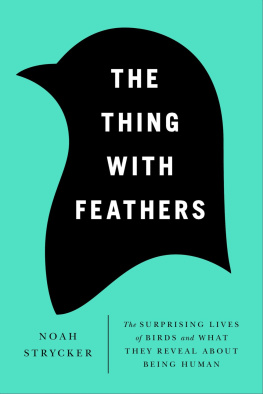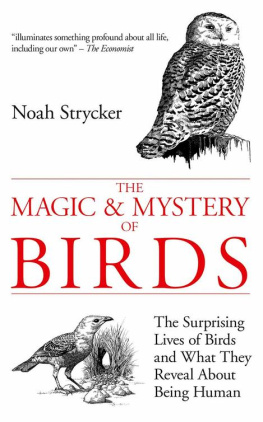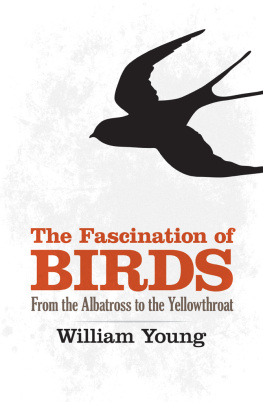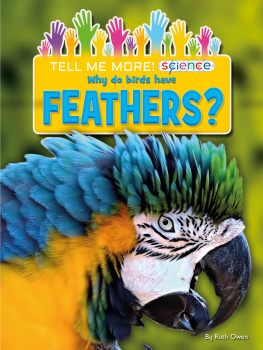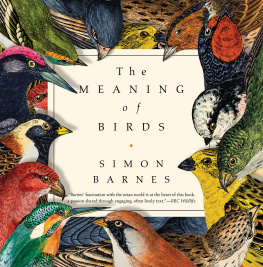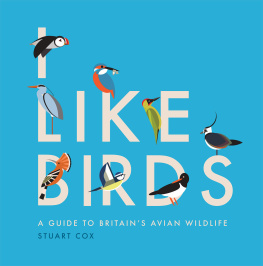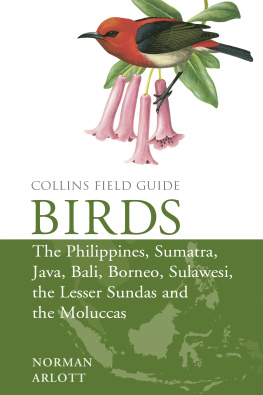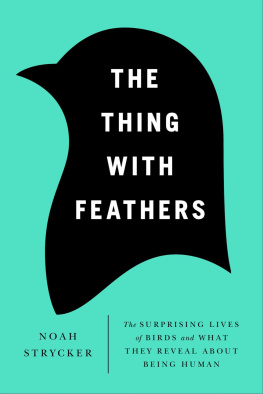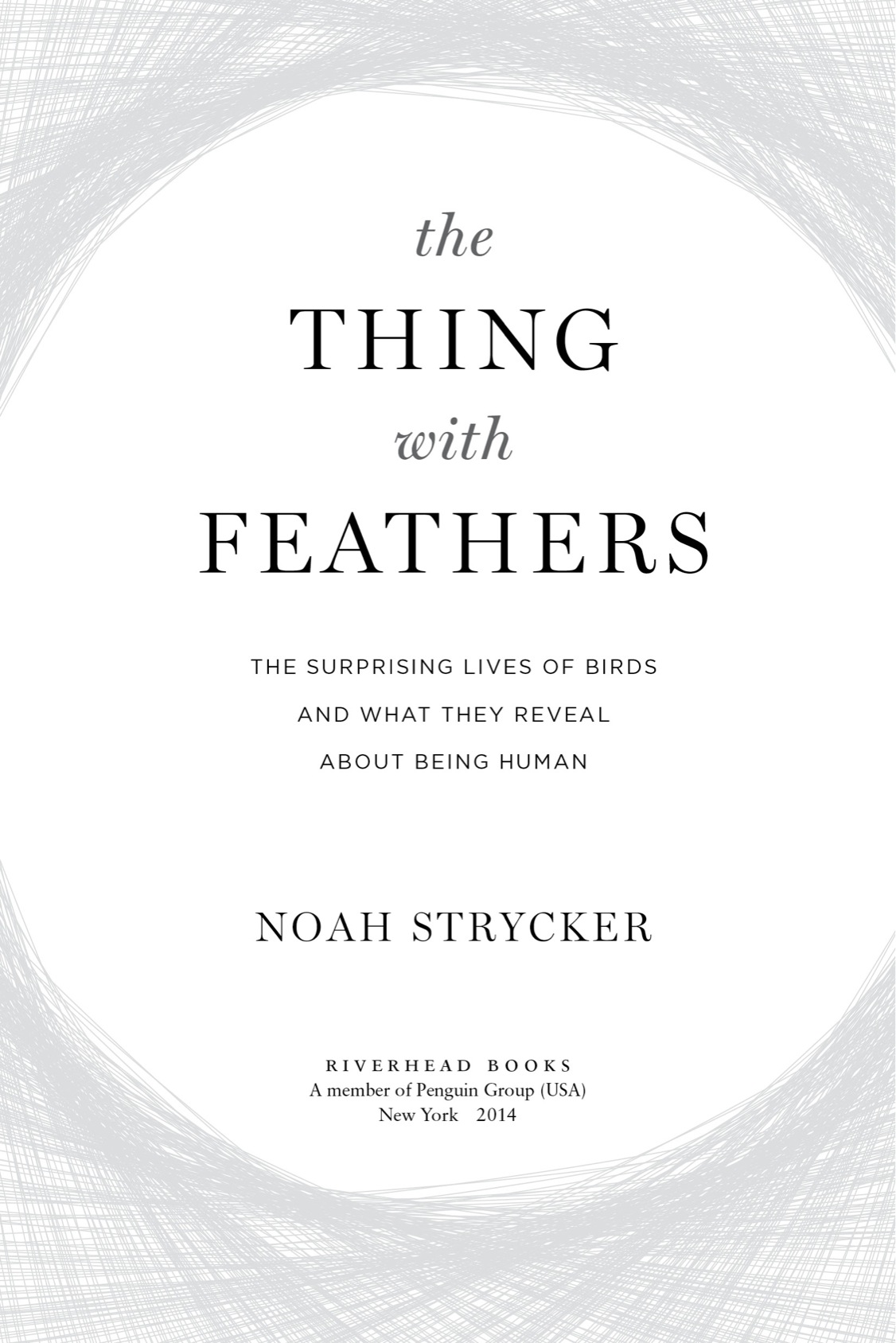Penguin supports copyright. Copyright fuels creativity, encourages diverse voices, promotes free speech, and creates a vibrant culture. Thank you for buying an authorized edition of this book and for complying with copyright laws by not reproducing, scanning, or distributing any part of it in any form without permission. You are supporting writers and allowing Penguin to continue to publish books for every reader.
Strycker, Noah K.
The thing with feathers : the surprising lives of birds and what they reveal about being human / Noah Strycker.
p. cm.
Includes bibliographical references and index.
1. BirdsBehavior. 2. Bird watchingAnecdotes. 3. Human-animal relationships. I. Title.
While the author has made every effort to provide accurate telephone numbers, Internet addresses, and other contact information at the time of publication, neither the publisher nor the author assumes any responsibility for errors, or for changes that occur after publication. Further, the publisher does not have any control over and does not assume any responsibility for author or third-party websites or their content.
INTRODUCTION
Imagine what might happen if birds studied us.
Which human traits would catch their interest? How would they draw conclusions?
Perhaps birds would begin, as most good scientists do, with the basics. They could spend a lot of time measuring the human body: weight, height, strength, pulse, brain size, lung capacity, color, growth rate, life expectancy, and so on. Academically minded birds could fill volumes with clinical, physical observations of people. Of course, theyd have to dispatch teams of field techs to collect the data. You might step out your front door one morning to find yourself entangled in an invisible net, surrounded by efficient young robins armed with rulers and scales. No doubt theyd soon send you on your way, none the worse for wear save the embarrassment of being caught and the loss of a few carefully plucked strands of hair. Then the robins would retreat to analyze their numbers.
How much could a bird really get to know us from these physical statistics? Take brain size, the feature we humans tend to be most proud of. A bird might rightly point out that for sheer size, the human brain is nothing special; whale and elephant brains, for instance, are much larger. Birds could go a step further and compare human brain size with body weight, but even then, humans wouldnt stand out: Our ratio of brain to body weight is about the same as that of a mouse (about 1/40) and is smaller than that of some birds (1/14); in terms of relative size, ants may have the biggest brains of all (1/7). To explain these mediocre numbers, humans have observed that while brain size increases along with body weight, it follows a power lawin other words, brains dont increase in direct proportion to bodies. But this formula was developed by mammals, for mammals. Birds, if they were to study our brains, might not embrace this logic. They might not think that the human brainor the human animal, for that matterwas particularly interesting.
To really learn about humans, curious birds would therefore have to study more than just our bodies. They would have to closely observe how we behave, and then try to figure out why we act in the ways we doa monumental task. Consider the deceptively simple question: Why are you reading this book? You might say to learn about birds or for entertainment, but your reasons probably go beyond that. Reading seems to fulfill a widespread human urge. Evolutionary biologists point out that people of many cultures enjoy reading despite the fact that for most of human history, writing didnt exist. Deciphering words on a page must take advantage of abilities that have been hardwired into us, but nobody quite knows why we like to read. And if we dont know why we do it, what could a bird possibly make of you reading this book? How would a bird draw conclusions about a behavior so foreign to its own?
If birds set out to study human behavior, theyd almost certainly start with something familiar to them. They could, for instance, study our sleep habits. That team of robin field techs would camp out in a corner of your bedroom, making detailed notes about things like the color of your bedsheets and the volume of your snores. Surely birds would understand the need to rest each night. But what would they conclude about the wider human condition from these bedroom vigils, especially considering that birds dont sleep the same way we do? Most birds are very light sleepers, rarely falling into the same dead-to-the-world state so familiar to people. And a few birds have particularly strange sleep habitssome swifts are thought to sleep on the wing, perhaps with half their brain turned off at a time. There is a type of parrot that sleeps hanging upside down, like a bat. Hummingbirds enter a state of near-death torpor after dark to conserve energy. Even the most basic behaviors, like sleep, become more complex the more they are studiedand more difficult to understand.
From their research on human habits, birds might even conclude that people wish they were birds. Think of the trillions we have spent on airplanes, space shuttles, and other flying machines over the past century. What is a bird to think? Would birds argue over the differences between bird and human behaviorand whether those differences are absolute or merely a matter of degree, as Darwin once suggested? A bird might examine some of our airplanes with pity, and feel superior to its human study subjects. Who could blame it?
THE IDEA OF BIRDS studying people is pure anthropomorphismassigning human characteristics to birds just to make a point. Birds have better things to do than study humans, and its debatable whether they even have the mental capacity to comprehend concepts like scientific inquiry. Birdwatchers often joke about birds watching them, but birds probably dont nurture much interest in us beyond a basic fear of predators (check out the chapter for more about this). We play only a minor role in the bird world.
And yet the more we humans study birds and discover more ) are now recognized in birds. This isnt anthropomorphism at all; anyone who suggests otherwise is ignoring a large part of what it means to be a bird. Moreover, a wave of neurological research on people indicates that the same behaviors, when expressed in humans, may be more instinctive than many of us realize, the result of aeons of natural selectionbehaviors that evolved, in other words, because they give us a survival advantage. So the perceived gap between humans and other animals has lately been shrinking at both ends.

